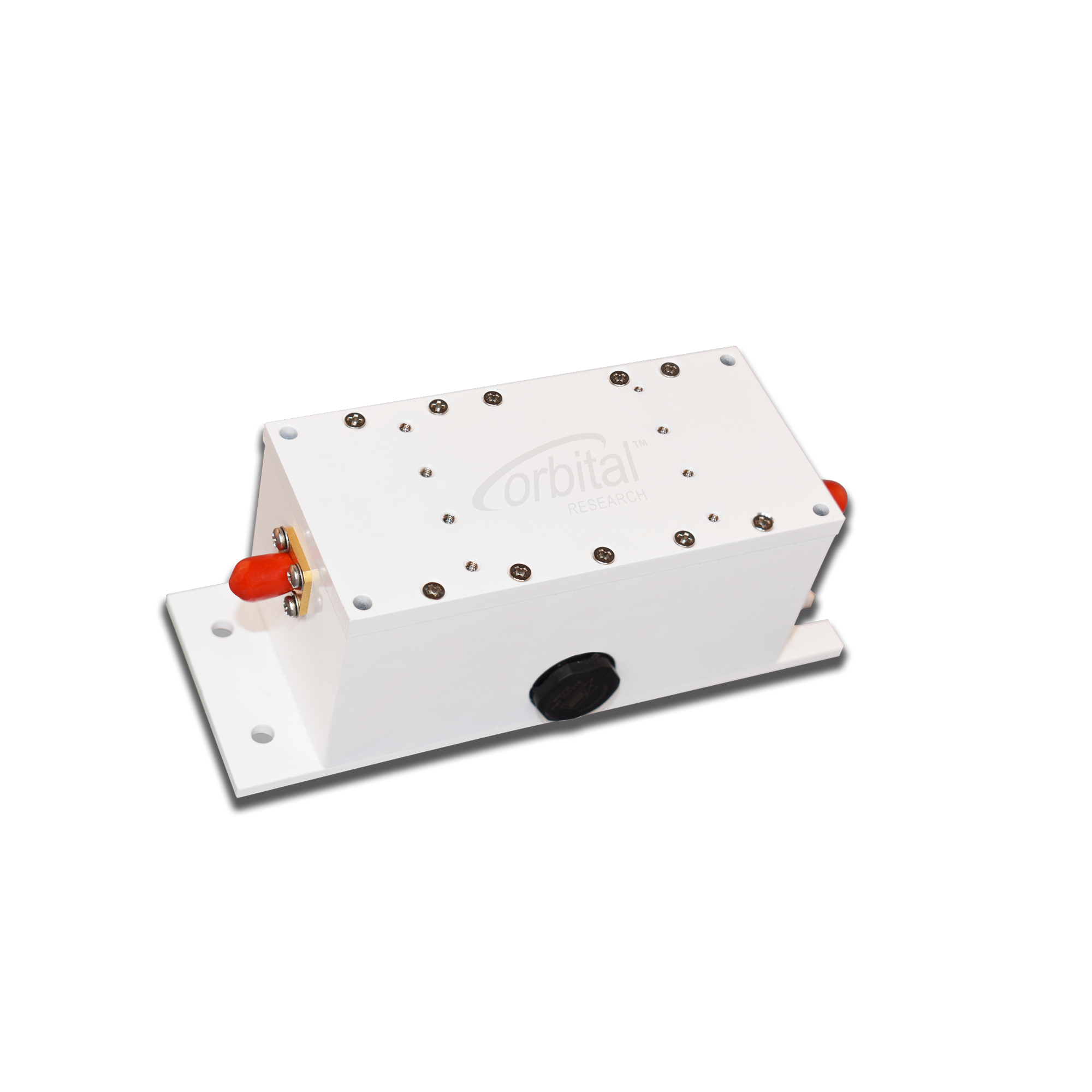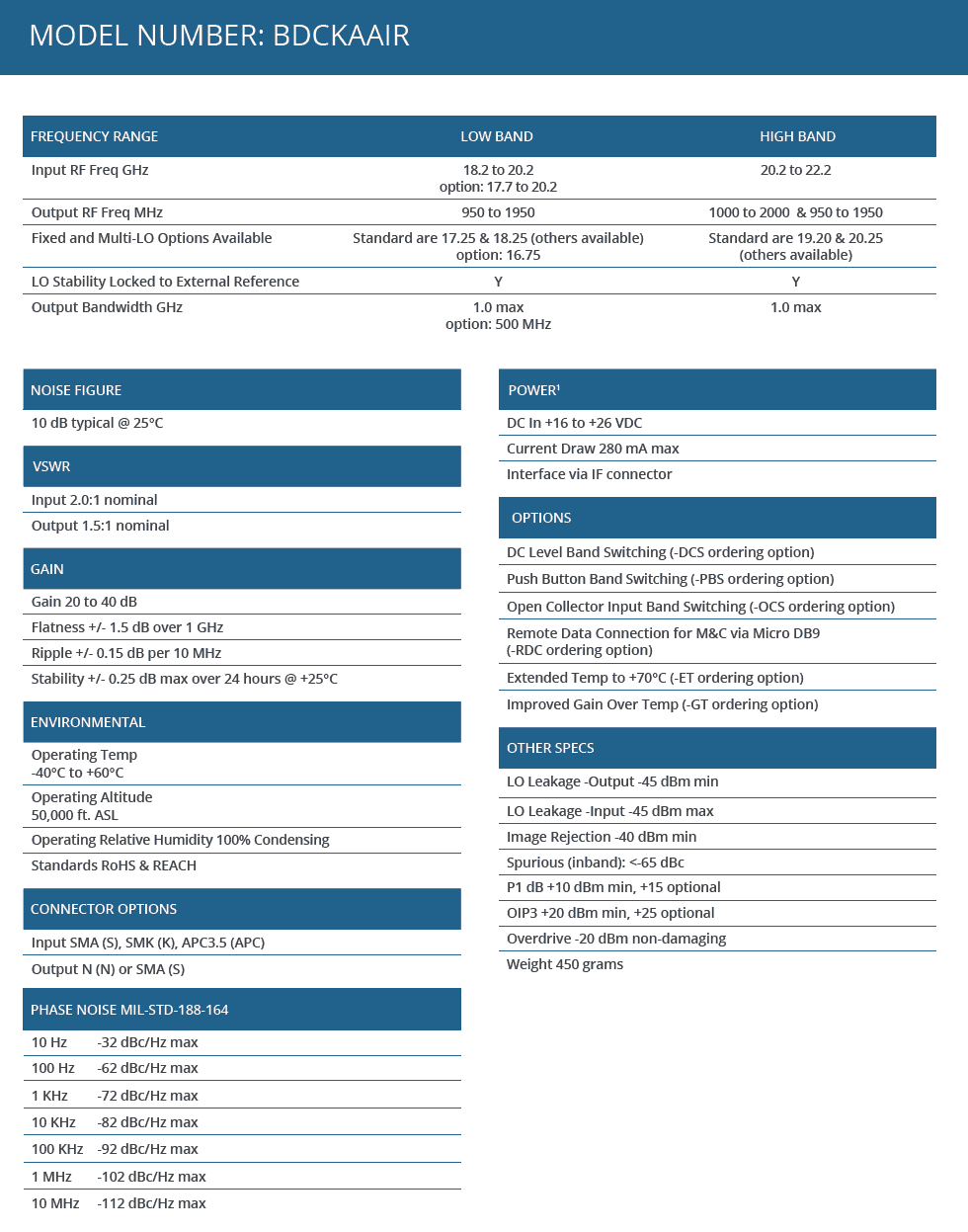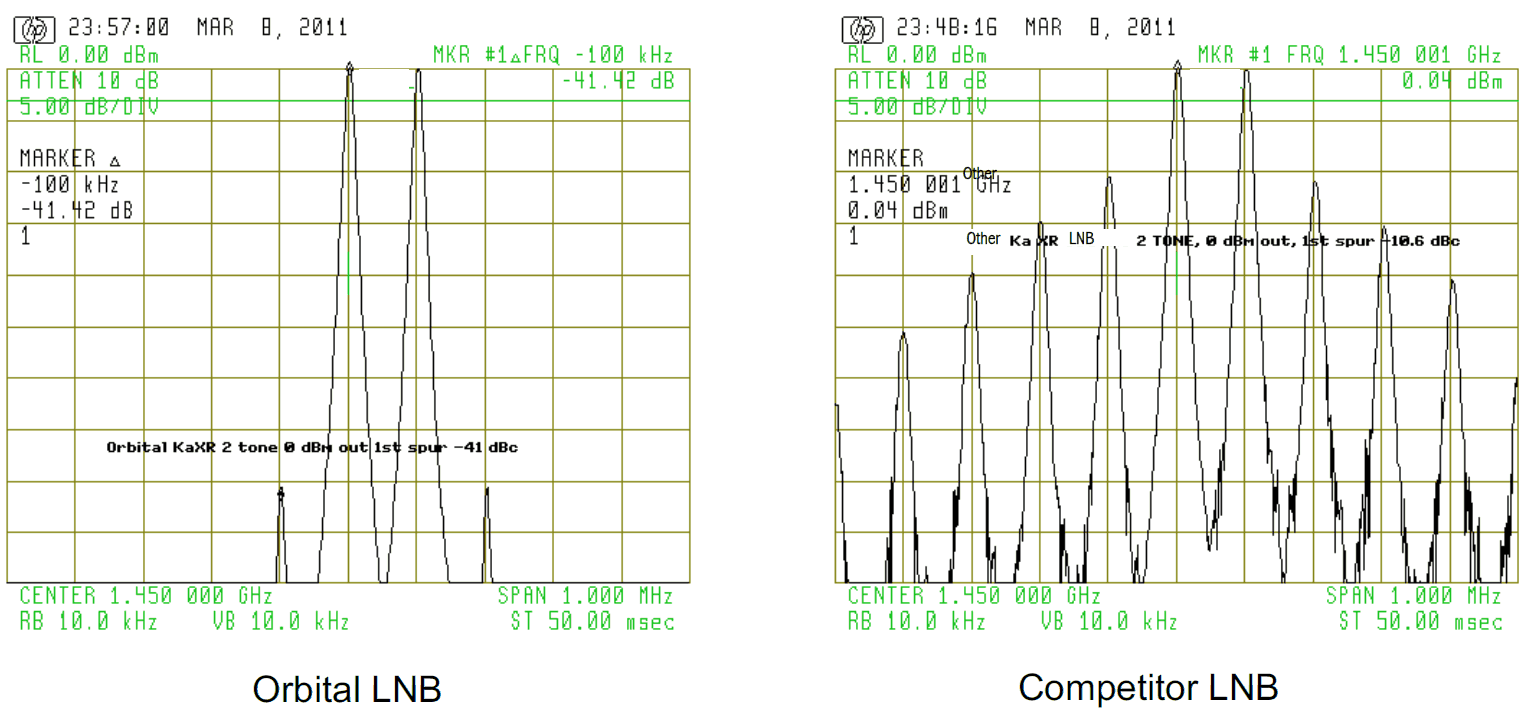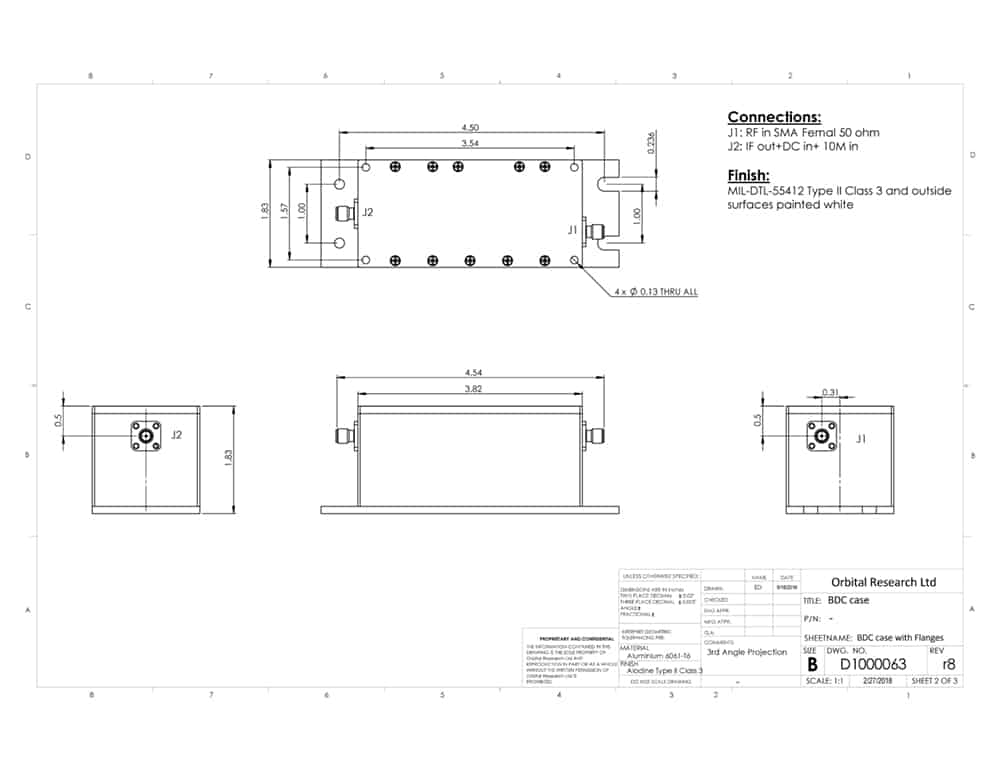Ka-Band Airborne BDC
Built for airborne SATCOM and in-flight connectivity, these Ka-band block downconverters (BDCs) deliver market-leading performance and reliability in a ruggedized package. They come with either multiple or fixed local oscillators, provide bandwidth of up to 1 GHz, and can be tuned anywhere in the following Ka frequency bands: 17.7 to 20.2 GHz, 18.2 to 20.2 GHz and 20.2 to 22.2 GHz. Like all Orbital BDCs, they support high data throughput with very low bit error rates.
- External referenced for stability
- Exceptionally low phase noise
- Preset signal gains from 20 to 40 dB
- Linearity for higher-order modulation schemes
- Options for temperatures up to 70°C
Applications
Our Ka-band airborne BDCs are designed for military, commercial and BSS broadband applications – and can provide access to 4 GHz of Ka spectrum. They are built to AS9100 standards and operate reliably at high altitudes, extreme temperatures, and in turbulence. Whether they’re installed in-cabin or externally, these BDCs can help meet demand for fast airplane wifi and in-flight entertainment.



